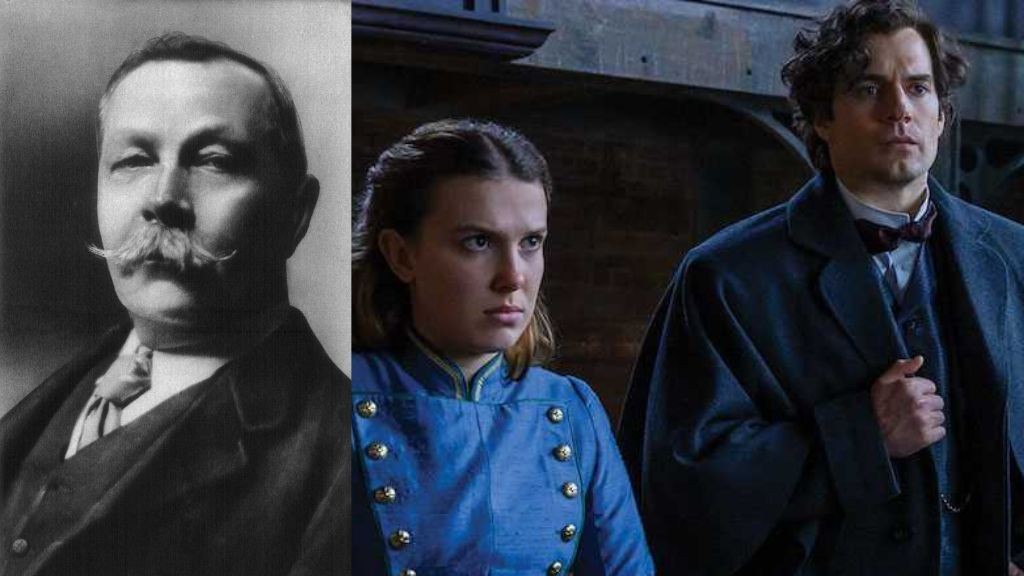The Enola Holmes film series brought Millie Bobby Brown and Henry Cavill on a project together which warmed many hearts. The cold relationship between the duo became caring and empathetic as the latter’s character, Sherlock Holmes started to know more about his younger sister played by the former.

Though their reel relationship further charmed the film series, a specific institution was not happy with how the iconic detective was portrayed in the film.
Arthur Conan Doyle’s Estate Sued Netflix Over Sherlock Holmes’ Emotions

Back in June 2020, Henry Cavill’s portrayal of Sherlock Holmes in the Enola Holmes film series stirred controversy due to his emotions being shown in the film.
Arthur Conan Doyle’s estate sued Netflix, the film’s producers Legendary Pictures, and Nancy Springer (author of the book series this film was based on) among others associated with the project due to the character’s emotions. The lawsuit claimed copyright infringement as the film depicted a “too Caring and empathetic” version of Sherlock Holmes.
It was quite a surprise for many as the spy character is in the public domain after the demise of Conan Doyle in 1930. They argued that the character of Sherlock Holmes appeared to be “aloof and unemotional” throughout his novels however the film depicted it otherwise. They also argued that Springer and the hit film made “extensive use” of the copyrighted stories, referring to the 10 stories which are still held by them.
Those copyrighted 10 stories were written between 1923 and 1927 and will likely expire this year. The whole controversy led to those stories in which the spy character changed.
Why Did Sherlock Holmes’ Emotions Garner Major Controversy?

As per the claim, the British writer changed his creation’s emotions when he lost his son in World War I followed by the tragic departure of his brother just four months later.
The lawsuit stated,
“It was no longer enough that the Holmes character was the most brilliant rational and analytical mind. Holmes needed to be human. The character needed to develop human connection and empathy … He became capable of friendship. He could express emotion. He began to respect women.”
In the film, Holmes respected his younger sibling which the estate claimed is something the film and Springer infringed that is still under copyright.
Meanwhile, the defendants argued,
“Copyright law does not allow the ownership of generic concepts like warmth, kindness, empathy, or respect, even as expressed by a public domain character—which, of course, belongs to the public, not Plaintiff.”
Despite it garnering attention at the time, the case never reached the court with the lawsuit being dismissed.
Source: The Guardian

